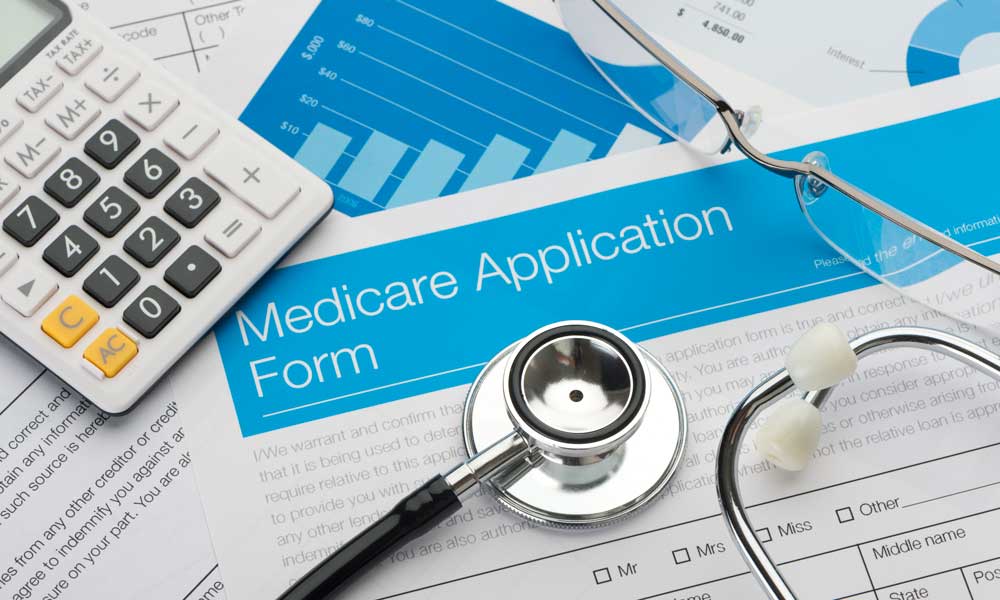Medicare Eligibility: Do You Qualify?
Updated:
Retirement Living takes an unbiased approach to our reviews. We may earn money when you click a partner link. Learn More

We do not offer every plan available in your area. Any information we provide is limited to plans we do offer in your area. Please contact Medicare.gov or 1-800-MEDICARE (TTY users should call 1 (877) 486-2048) 24 hours a day/7 days a week to get information on all of your options.
There are several different ways to qualify for Medicare, depending on your age, citizenship status, medical conditions, work history, and even your spouse, if you have one. The amount you pay and the plan you choose may vary, too. Here’s what you need to know about Medicare eligibility, including special circumstances and alternatives.
What Is Medicare?
Simply put, Medicare is a federal health insurance program for people age 65 and older, plus others who meet certain qualifications we discuss later in the article. It includes four parts:
- Part A deals with hospital costs, including short-term stays at a skilled nursing facility, home health care, hospice services, and inpatient medicine administration.
- Part B deals with medical costs, including preventive care, outpatient and inpatient services, and medical equipment.
- Part C allows you to receive your Medicare benefits in different ways. This includes private health plans, such as Medicare Advantage plans (mainly HMOs and PPOs) that cover Part A, Part B, and often Part D services in one package. Part C replaces Parts A and B with a privatized version of original Medicare and often includes a bundled Part D.
- Part D helps pay the cost of prescription drugs and other necessary medications. You must be enrolled in a Part D plan or in a Medicare Advantage plan that offers Part D drugs.

Qualifying for Medicare
You cannot simply purchase Medicare coverage; you must qualify for it. If you are 65 or older, there is one set of qualifications you must meet, and if you are younger than 65, there is another set.
People 65 and older:
- You can enroll in Medicare Part A and B during the initial enrollment period (IEP), which is three months before your 65th birthday and the three months after your birthday month.
- You must be a U.S. citizen or a permanent legal resident with five years of living within the United States.
- If you or a spouse are eligible for Social Security benefits or railroad benefits, then you’re eligible for Medicare as well.
- If you or your spouse is a government employee or retiree who has paid Medicare payroll taxes (regardless of whether you’ve paid into Social Security) for 10 years or more, you’re eligible.
- If you or your spouse have health insurance through an employer, you can still sign up for Part A, and you can choose to delay Part B.
People Younger Than 65:
- You’re eligible for Medicare if you are entitled to Social Security disability benefits for at least 24 months. Medicare enrollment is automatic on the 25th consecutive month.
- You’ll also be eligible if you get a disability pension from the Railroad Retirement Board.
- If you have amyotrophic lateral sclerosis (ALS), also known as Lou Gehrig’s disease, you’re eligible for Medicare the same month you’re eligible for Social Security disability benefits.
- If you have End-Stage Renal Disease (ESRD), you are eligible for Medicare. However, you or your spouse still need to have paid Social Security taxes for a certain length of time, depending on your age.
Other Ways to Qualify for Medicare
If you don’t qualify using the above criteria and can’t qualify through your spouse, there are alternative ways to purchase full Medicare benefits once you’re 65:
- Pay the full premiums for Part A: This covers your hospital insurance. The cost of your monthly premiums will depend on your work history, work credits, and earnings, but they will be either $278 or $506 ($504 in 2024).
- Pay the premiums for Part B: You’ll pay these at the same rate as those who are eligible. Part B rates vary by income, if your income is above $97,000 ($194,000 if you’re married filing jointly), you’ll pay the standard Part B premium of $164.90 in 2023, plus an additional monthly amount.
- Pay the premiums for Part D: You’ll pay the same amount as others who are eligible to enroll in this part of the program.
If you want Part A, you must also buy Part B. You can get Part D if you have Part A or B.
It’s important to remember that if you skip signing up for Medicare when you’re first eligible, you may have to pay a penalty.
Pro tip: You can check your eligibility by visiting www.Medicare.gov or calling 1-800-Medicare. You can also call the Social Security Administration at 1-800-772-1213 or make an appointment to visit your local Social Security Office to speak with a representative.
Special Circumstances for Medicare
There are also certain considerations you need to keep in mind when planning to enroll in Medicare. The federal government has specific requirements, rules, and guidelines that cover the circumstances below:
- Health savings accounts: You cannot contribute to a Health Savings Account through your employer after enrolling in Medicare Part A or Part B, although you can continue to withdraw what you have already contributed. Instead, you can contribute to a Medicare Medical Savings Account (MSA), which serves much the same purpose.
- Citizenship: If you’re not a U.S. citizen, you can still qualify for Medicare if you’re a lawful U.S. resident and you or your spouse paid a total of 10 years of Medicare taxes. If that doesn’t apply, you may be able to purchase Part A and Part B coverage (instead of receiving premium-free coverage) after five continuous years of lawful U.S. residency.
- Living overseas: You can have Medicare if you live outside the U.S., but it typically doesn’t cover health care overseas. You can enroll once you become eligible, or wait for the general enrollment period. (If you don’t qualify for premium-free coverage, consider whether the cost is worth it, especially since you generally won’t be able to use your coverage abroad.)
- Living in prison: If you’re incarcerated, you aren’t automatically enrolled in Medicare when you become eligible because your health care is paid for by the penal institution. You can still enroll and avoid late enrollment penalties by contacting the Social Security Administration (SSA). If you wait until you’re released, there’s a special one-year enrollment period for people who didn’t enroll in Medicare while incarcerated. You’ll need to keep paying your Part A and Part B premiums while in prison if you want your coverage to begin as soon as you’re released.
- Same-sex marriage or domestic partnerships: Medicare rules are the same no matter the sex of your spouse, so eligibility works the same for same-sex marriages as it does for opposite-sex marriages. Medicare does not recognize domestic partners as spouses, however, so if you’re not married, you won’t be able to qualify based on your domestic partner’s work history.
Medicare Part C Eligibility (Medicare Advantage)
There’s also a Medicare Part C, sometimes called Medicare Advantage. Medicare Advantage rolls Part A and Part B (and usually Part D, too) into one health plan, which is offered by private, Medicare-approved insurers. It’s an alternative way to get your Medicare coverage plus you may get access to additional services such as vision and dental.
To be eligible for Medicare Part C (Medicare Advantage), you’ll need to:
- Have Medicare Part A and Part B
- Live in your selected plan’s service area
There are five different types of Medicare Advantage plans you can choose from, with varying premiums, processes, and coverage. Medicare Advantage plans are usually not available for people with End-Stage Renal Disease (ESRD).
Next Step: Compare Medicare Plans and Enroll
Compare the best Medicare Advantage plans with our Medicare Buyers Guide and enroll in the right plan for you. For information on how you can benefit from a Medicare supplement plan (also known as Medigap), check out our Medicare Supplement plan guide.